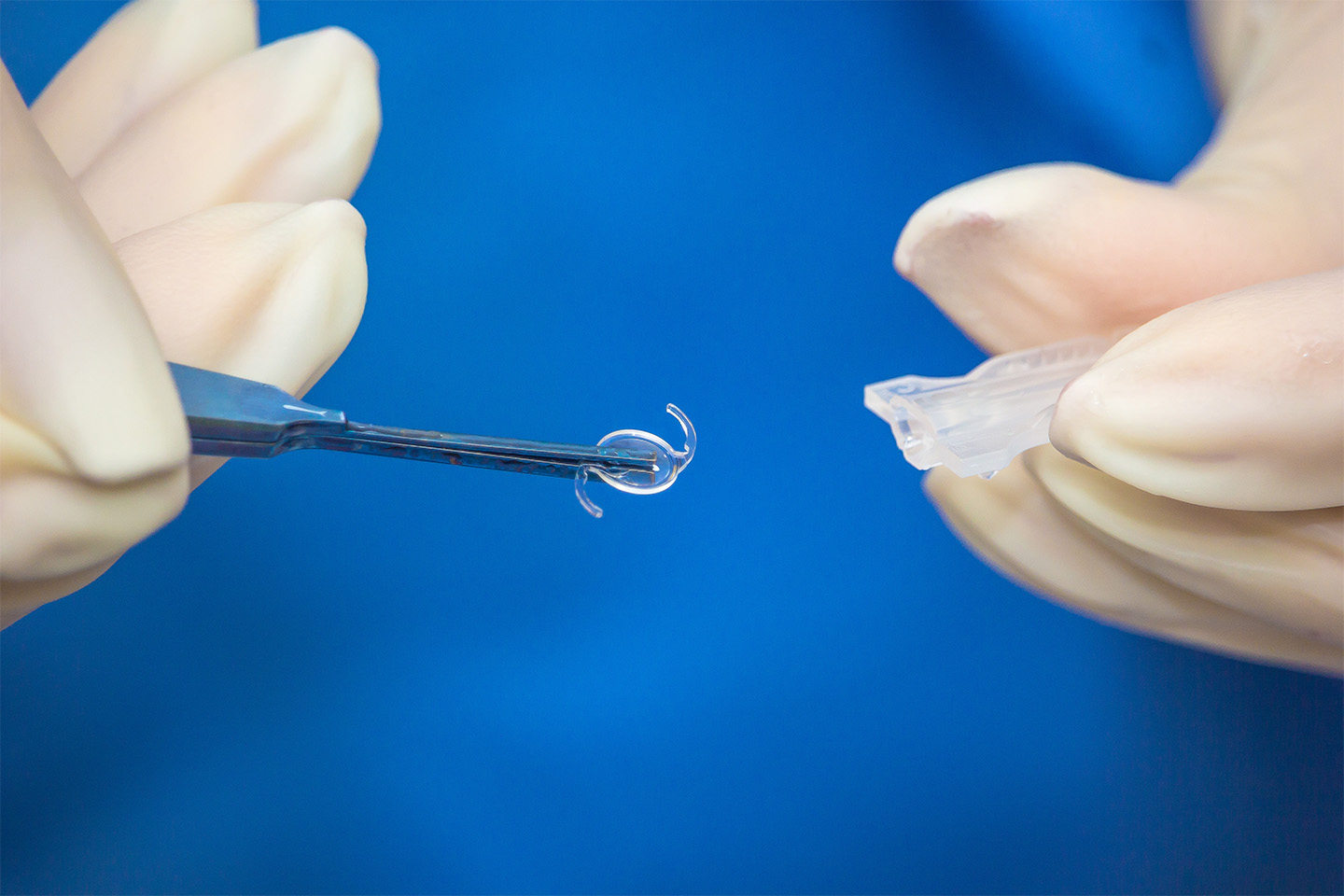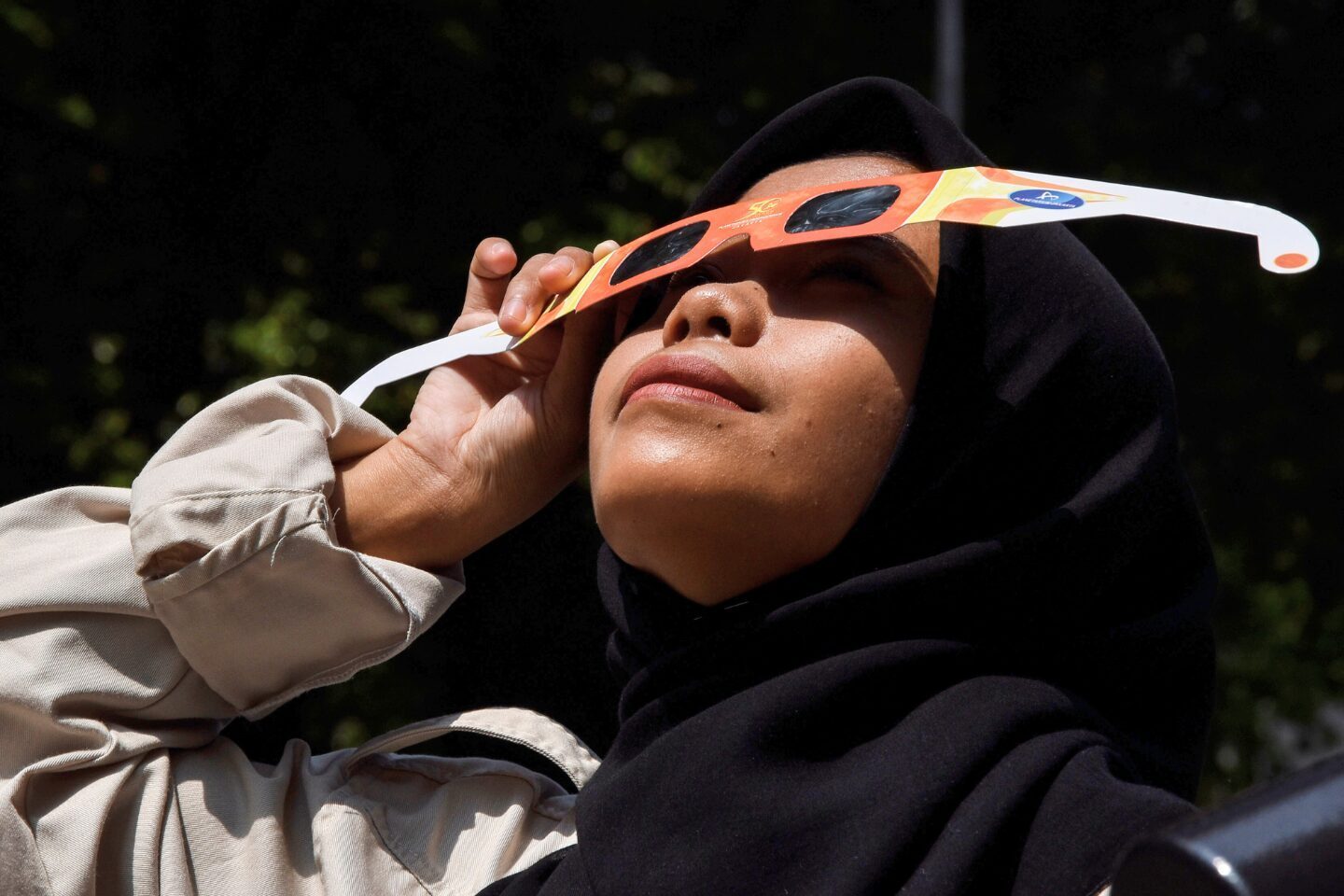Can You Inherit Age-Related Macular Degeneration?

If you have a family history of age-related macular degeneration, you may be at greater risk. Talk to your doctor about regular screenings and lifestyle changes.
February is Age-Related Macular Degeneration (AMD) Awareness Month, and there’s no better time for patients to understand whether they’re at risk for this unfortunately common condition. Some 14 million Americans have AMD, and those numbers are expected to climb as the population ages.
Many aging patients may remember a parent with vision loss or hear that their sibling received an AMD diagnosis. It’s therefore understandable that many individuals are curious about their genetic predisposition to macular degeneration. Researchers have confirmed that genetic predisposition may increase your risk significantly — anywhere between 40-70%. However, doctors agree that the best line of prevention for this complex disease is your annual eye screening.
What is Age-Related Macular Degeneration?
Macular degeneration refers to the breakdown of the macula, the small central area in the retina that allows for focus and perceived brightness. For the patient, this condition is associated with blind spots and blurring in the center of their field of vision. While AMD rarely causes complete blindness, it is the leading cause of vision loss for individuals over 55.
Macular degeneration usually progresses slowly, but in rare cases can occur rapidly. AMD typically appears in patients over 50, who may notice that they are having trouble reading or recognizing faces. Over time, AMD may progress to the point where it’s difficult to perform everyday functions, like driving or cooking.
Can I Inherit AMD?
A family history of AMD does put you at higher risk for also developing this disease. For instance, about 15-20% of people with AMD have a first-degree relative, like a sibling or parent, who also have the condition. AMD is also more prevalent among Caucasians. As the genetic nature of AMD becomes clear, understanding heritability could theoretically pave the way for new preventative treatments.
Researchers have discovered over 30 genetic components that together account for about half of AMD heritability. For instance, a 2006 study in two genes, Factor H and Factor B, that appear in 74% of AMD patients. Not everyone with these variants will develop AMD, however, which suggests the inflammation related to the genes is activated by a specific and currently unknown trigger.
The discovery of further genetic components confirms that AMD is a complex, multifactor condition. A 2008 study identified another risk gene, complement factor H (CFH). Typically this gene protects blood vessels from inflammation, but a particular variation of this gene can account for an estimated 43% of an individual’s risk for developing AMD. Research on AMD heritability could lead to improved early detection methods
However, patients should be aware that genetic predisposition does not inevitably lead to the disease. Other risk factors include smoking and pre-existing conditions like high blood pressure, diabetes, and high cholesterol. Although age and genetic factors may play the most significant role in AMD risk, lifestyle modifications are still potentially useful to help prevent AMD, even among those with high genetic risk.
Addressing Vision Loss
If you suspect you are at genetic risk for macular degeneration, you may wish to talk to your doctor about early screening or healthy lifestyle changes. But if you believe you are experiencing any of the symptoms of macular degeneration, you should be sure to seek prompt medical treatment. Proactive treatment is key to minimizing further vision loss.
Don’t wait until it’s too late — schedule your free consultation today. The doctors at Kleiman Evangelista Eye Centers of Texas can use state-of-the-art diagnostic tools, like angiography, to recognize AMD well before it has progressed.
Turn To The Top Eye Doctors In Texas
Check out one of our locations below for the best eye care near you:









